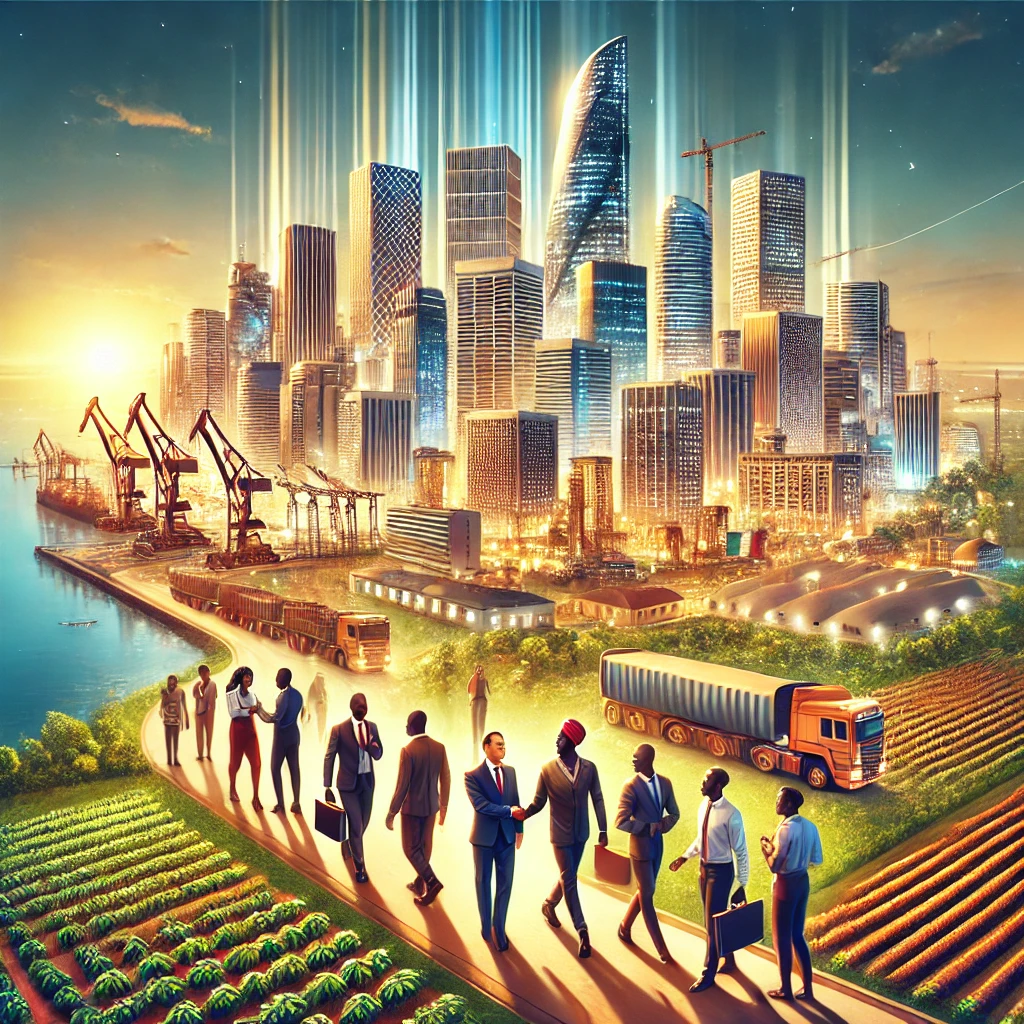Published Date: March 21, 2025 Author: Global World Citizen Editorial Team Source: GlobalWorldCitizen.com 🌍
In a continent grappling with instability, economic hardship, and inflation, Côte d’Ivoire (Ivory Coast) stands out as a beacon of resilience and progress. Often overlooked in global economic discussions, this West African nation of 31 million has quietly engineered one of Africa’s most remarkable turnarounds—what many are calling a second Ivorian miracle.
Hedge fund manager Bernard Ayitee is among a growing number of returnees and entrepreneurs who see Côte d’Ivoire as a land of possibility. “This country is blessed,” he says. “Anything you try can work.”
 Economic Growth Defying the Odds
Economic Growth Defying the Odds
After enduring two devastating civil wars, Côte d’Ivoire has emerged with a renewed economic vigor. From 2012 to 2023, the country maintained an impressive average annual growth rate of 7%, with the IMF projecting continued growth of 6.5% through 2025. Even during the global pandemic, the Ivorian economy showed resilience.
While other African nations are battling double-digit inflation, Côte d’Ivoire held inflation to just 3.8% in 2024, compared to the West African average of 21.6%. Unemployment among youth—arguably the most vulnerable demographic—is only 5%. GDP per capita now stands at $2,900, the highest in West Africa after Cape Verde.
 From Cocoa to Capital: Diversifying for Stability
From Cocoa to Capital: Diversifying for Stability
The original “Ivorian miracle” was largely driven by booming cocoa production, with the country still the world’s top producer. But today’s renaissance is more diversified. Agriculture’s share of GDP is shrinking while services and industry are rising. As of 2022, services made up more than half of GDP, and industrial activity had grown to 25%, up from just 16% in 2000.
This diversification has helped the country weather commodity fluctuations and attract foreign investment. In the last decade, Côte d’Ivoire has seen private capital inflows rise by 8.6% annually—more than any other Francophone West African nation.
 Global Confidence and Strategic Leadership
Global Confidence and Strategic Leadership
Côte d’Ivoire owes much of its transformation to President Alassane Ouattara, a former IMF executive who has led the country since 2010. His administration’s investor-friendly reforms—like the 2018 Investment Code offering tax breaks and customs waivers—have lured billions in foreign direct investment across banking, manufacturing, fintech, and logistics.
Infrastructure development has also accelerated. Roads, bridges, and energy access have seen dramatic improvements. Electricity coverage expanded from 34% in 2013 to over 90% today, drastically improving quality of life and enabling business growth.
 Energy Ambitions Fueling the Future
Energy Ambitions Fueling the Future
Beyond infrastructure, the government is banking on energy to power its next phase. Italian energy company Eni has committed $10 billion to develop the Baleine offshore oil field. Production is already underway, with targets set to reach 200,000 barrels per day by 2027. These revenues are expected to further strengthen the national economy.
 Challenges: Climate, Skills, and Political Uncertainty
Challenges: Climate, Skills, and Political Uncertainty
Despite its achievements, Côte d’Ivoire faces pressing challenges. The legacy of civil conflict severely disrupted education, leaving a skills gap in the workforce. Meanwhile, reliance on fossil fuel development amid the climate crisis raises long-term sustainability concerns.
Most critically, political uncertainty looms. President Ouattara, now 83, controversially won a third term in defiance of constitutional limits. With no clear successor, there are concerns he may run again, reviving memories of past electoral violence. Former president Laurent Gbagbo, whose refusal to step down in 2010 led to civil war, is attempting a political comeback.
 The Stakes Are High
The Stakes Are High
Ivorians today enjoy significantly better living conditions than they did 15 years ago—a rare feat in the region. But this progress makes the stakes of political missteps even higher. As one African Development Bank official put it: “No one in Côte d’Ivoire is worse off than they were 15 years ago. But now, they have something to lose.”
If political leaders can ensure a peaceful and democratic transition in the coming elections, Côte d’Ivoire may not only secure its current gains but position itself as a model for sustainable development across Africa.




